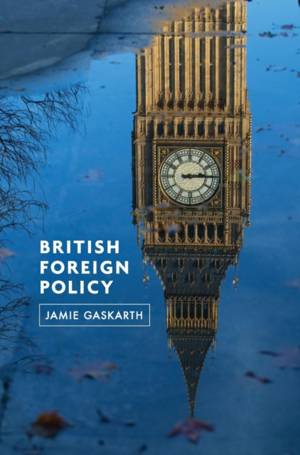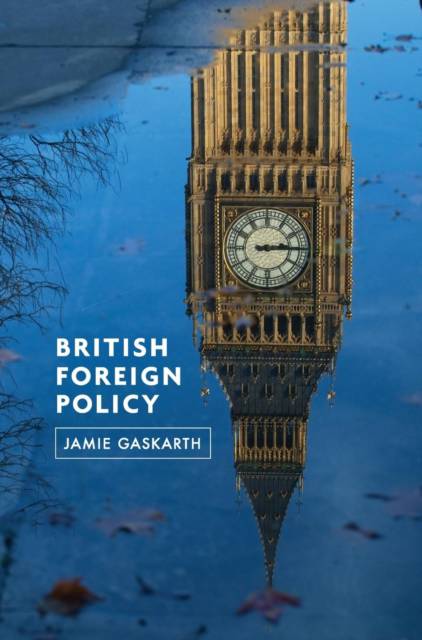
- Afhalen na 1 uur in een winkel met voorraad
- Gratis thuislevering in België vanaf € 30
- Ruim aanbod met 7 miljoen producten
- Afhalen na 1 uur in een winkel met voorraad
- Gratis thuislevering in België vanaf € 30
- Ruim aanbod met 7 miljoen producten
Zoeken
€ 111,45
+ 222 punten
Uitvoering
Omschrijving
Britain has been a significant voice in global politics in the last two decades and its impact on world events far outweighs its material resources. But how does a small island on the edge of Europe continue to exercise this level of power on an international scale? What kind of actor is Britain internationally? And what future challenges will confront British foreign policymakers in a multi-polar world of emerging powers?
In this comprehensive introduction to British foreign policy today Jamie Gaskarth addresses these and other key questions. Against a rich historical backdrop, he examines the main actors and processes involved in British foreign policy-making as well as the role played by identity in shaping such choices. Later chapters focus on the relationship between economics and foreign policy, what it means to be ethical in this policy sphere, and the justification for and benefits of the UK's continued use of force to achieve its foreign policy goals.
Combining interview research, theoretical insight and analysis of contemporary and historical trends, this book charts how British foreign policy has come to be understood and practised in the 21st Century. It will be an invaluable guide for students of British politics, foreign policy, international relations and related courses.
In this comprehensive introduction to British foreign policy today Jamie Gaskarth addresses these and other key questions. Against a rich historical backdrop, he examines the main actors and processes involved in British foreign policy-making as well as the role played by identity in shaping such choices. Later chapters focus on the relationship between economics and foreign policy, what it means to be ethical in this policy sphere, and the justification for and benefits of the UK's continued use of force to achieve its foreign policy goals.
Combining interview research, theoretical insight and analysis of contemporary and historical trends, this book charts how British foreign policy has come to be understood and practised in the 21st Century. It will be an invaluable guide for students of British politics, foreign policy, international relations and related courses.
Specificaties
Betrokkenen
- Auteur(s):
- Uitgeverij:
Inhoud
- Aantal bladzijden:
- 288
- Taal:
- Engels
Eigenschappen
- Productcode (EAN):
- 9780745651149
- Verschijningsdatum:
- 20/05/2013
- Uitvoering:
- Hardcover
- Formaat:
- Ongenaaid / garenloos gebonden
- Afmetingen:
- 178 mm x 249 mm
- Gewicht:
- 680 g

Alleen bij Standaard Boekhandel
+ 222 punten op je klantenkaart van Standaard Boekhandel
Beoordelingen
We publiceren alleen reviews die voldoen aan de voorwaarden voor reviews. Bekijk onze voorwaarden voor reviews.











